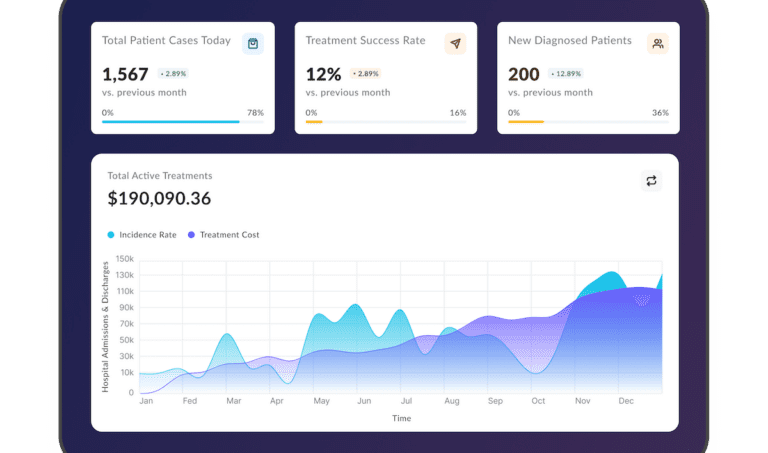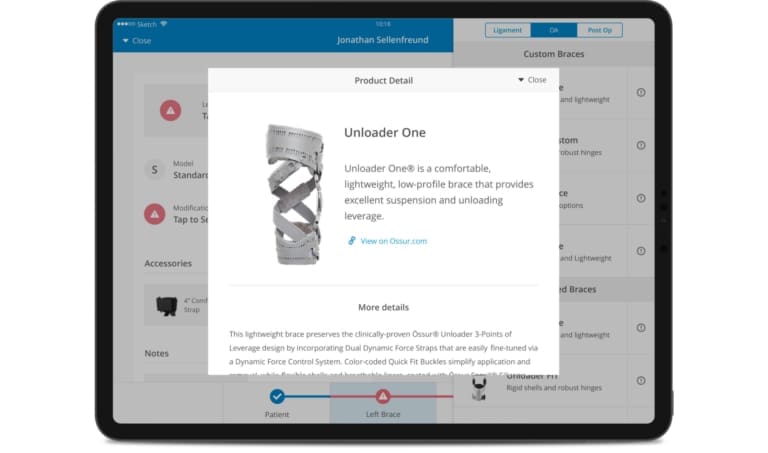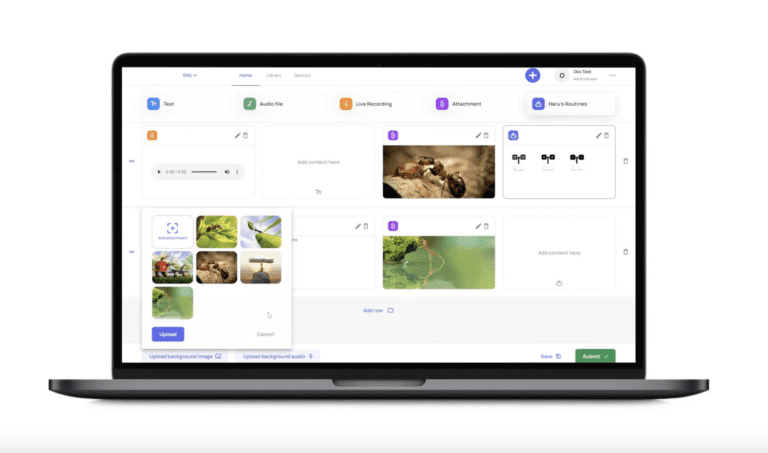The Full Guide to Real Estate Management Software Development (+ Case Studies)
Updated: February 26, 2025
Relevant Software’s team of seasoned product developers and industry analysts has extensively studied the market and found that nearly 70% of property managers struggle with outdated technology and fragmented processes, losing up to 30% in revenue and 25% in tenant satisfaction. This presents a critical challenge for companies in real estate management software development — to create smarter, integrated solutions that bring efficiency, control, and scalability to property management.
With years of experience optimizing complex real estate systems, Relevant Software experts know how to bridge that gap. This guide breaks down how real estate software development services drive real, measurable results—and how we help make it happen.

We provide companies with senior tech talent and product development expertise to build world-class software. Let's talk about how we can help you.
Contact usTable of Contents
What is real estate management software?
At its core, property management software acts as a command center. It consolidates fragmented processes—rent collection, tenant communication, maintenance management systems , and financial reporting—into one cohesive platform.
What is property management software’s role in modern real estate?
Modern property management software development helps you build sophisticated platforms—like automated property management software—to integrate predictive analytics in real estate, optimize tenant communications, and refine maintenance schedules, reducing manual oversight and mitigating errors. But, what does property management software do beyond the basics? By centralizing data, automating workflows, and offering real-time insights, these platforms enable businesses to control costs, scale efficiently, and unlock hidden value within their portfolios.
Key features of real estate management software
With the property management software solutions market expected to surge to $39.12 billion by 2030 —growing at a steady 8.4% CAGR—there’s mounting pressure on businesses to adopt smarter, more efficient technologies. As market demands evolve, so do tenant expectations, operational complexities, and the need for data-driven decision-making.
So, what features should real estate management software offer to stay ahead of the curve?
Property listing and management
Listings drive any property business, yet manual methods slow the process and cause errors. Platforms that automate listings and manage property showings across multiple channels cut vacancy rates. Advanced property management system (PMS) solutions manage the entire lifecycle—track lease expirations, flag upcoming vacancies, and align with market trends to boost rental income.
Custom property categorization, often overlooked, adds strategic value. Managers group assets by location, type, performance, or tenant demographics—offering sharper insights into what drives property success.
Tenant and lease management
Tenant retention is where many managers lose the most revenue without notice. High turnover leads to vacant units, extra marketing costs, and lost rent. Yet, retention is not about reaction—it focuses on foresight.
Platforms with tenant management solutions like integrated tenant portals, lease tracking software, and proactive tools cut turnover rates. Automated rent reminders, smooth lease renewals, and loyalty rewards help tenants feel valued. These tools also flag at-risk tenants—due to late payments or service issues—allowing managers to intervene early.
Financial management and accounting
Ask any property manager where most errors occur, and finances top the list. Misapplied payments, late fee disputes, and inaccurate reports drain time and resources.
Robust financial tools do more than track rent. They integrate seamlessly with accounting software like QuickBooks or Xero, auto-generate profit and loss statements, and flag discrepancies in real-time. Automated rent collection and transaction management ensure cash flow visibility—down to the unit level—enabling smarter budgeting and reducing operational costs.
Maintenance and work order management
Maintenance issues erode tenant trust faster than almost anything else. It’s not the broken faucet that upsets tenants—it’s the wait for repairs.
Strong maintenance management systems cut delays. Maintenance requests reach the right vendors, sorted by priority. Managers track progress in real-time, ensuring no task goes unnoticed. Predictive analytics spot patterns, like frequent HVAC breakdowns, and schedule repairs before peak seasons.
Document management
In an industry driven by contracts, leases, and compliance documents, losing paperwork isn’t an option. However, relying on shared drives or email threads creates risk.
Sophisticated document management systems centralize everything—contracts, inspection reports, compliance certificates—and layer in security. Features like digital signatures speed up approvals, while role-based access keeps sensitive files protected. A proper audit trail supports compliance and reduces legal risks.
CRM and communication tools
Tenant and owner communication is where many property managers stumble. Emails get buried, maintenance updates go unnoticed, and miscommunication leads to dissatisfaction.
Real estate CRM integration consolidates all interactions—emails, calls, texts—into one platform. Automated updates keep tenants informed, chatbots handle routine questions, and personalized messages strengthen relationships.
Data analytics and reporting
Data should guide decisions, not sit idle in spreadsheets. Yet, many property managers lack access to real-time insights.
The best platforms offer dashboards that go beyond basic metrics. Real-time occupancy rates, delinquent accounts, and maintenance costs form the foundation. AI-powered real estate tools use predictive analytics to forecast rent trends, flag high-risk tenants, and deliver custom reports for deeper insights.
Security and compliance features
Data breaches and compliance violations pose more than risks—they create costly liabilities. With regulations like GDPR, property managers must not ignore data protection.
Modern platforms use end-to-end encryption, apply role-based access, and run regular security audits. Compliance modules ensure operations follow regional regulations, lowering legal exposure. Relevant Software experts emphasize that strong security does more than prevent fines—it protects trust.
Here’s a detailed table outlining the key features of real estate management software, covering functionality, benefits, and tools for each feature:
| Feature | Description | Key benefits | Tools/Integrations |
| Property Listing & Management | Centralizes property listings and automates updates across multiple channels. | Streamlines listing process, reduces vacancies, boosts reach. | MLS integration, GIS mapping, multi-channel sync |
| Tenant & Lease Management | Tracks tenant information, lease terms, renewals, and compliance. | Improves retention, reduces turnover, and ensures legal compliance. | Tenant portals, lease tracking, e-signatures |
| Automated Rent Collection | Enables online rent payments with automated reminders and late fee tracking. | Reduces payment delays and improves cash flow. | Stripe, PayPal, ACH integration |
| Maintenance Management | Manages service requests, schedules preventive maintenance, and tracks vendor performance. | Reduces downtime, controls costs, and improves tenant satisfaction. | IoT sensors, vendor portals, predictive analytics |
| Document Management | Centralizes contracts, leases, and compliance documents with secure access and version control. | Ensures document accuracy and improves compliance. | OCR, digital signatures, cloud storage |
| Data Analytics & Reporting | Provides real-time dashboards and predictive analytics for rent trends, vacancies, and performance. | Informs decisions, optimizes operations, and forecasts trends. | BI tools, AI-powered analytics, custom reports |
| Security & Compliance | Implements data encryption, role-based access, and regular audits to meet regulations like GDPR. | Protects sensitive data and reduces legal risks. | SSL/TLS, end-to-end encryption, audit trails |
| Marketing & Lead Generation | Automates property marketing, tracks leads, and personalizes property recommendations. | Increases visibility and boosts occupancy rates. | AI-driven ads, SEO tools, lead tracking |
| Mobile Access & Cloud Integration | Provides access to all features via mobile apps and cloud platforms. | Enables remote management and improves flexibility. | iOS/Android apps, AWS/Azure cloud services |
| AI & Predictive Analytics | Uses machine learning to forecast maintenance needs, rent trends, and tenant risks. | Prevents issues, enhances ROI, and improves tenant screening. | AI algorithms, IoT integration, ML models |
Types of real estate management software
Real estate management isn’t one-size-fits-all. Different properties and management styles require specific tools tailored to their needs, whether it’s real estate SaaS platforms, custom real estate software development, or tenant management solutions.

Here’s a quick look at the main types of real estate management software and what they bring to the table.
Residential property management software
For landlords and real estate professionals managing rental homes, apartments, or condos, this software simplifies core tasks—rent collection, lease tracking, and maintenance management. It also enhances tenant experiences with marketing materials like community forums, amenity reservations, and automated rent reminders.
According to the experience of Relevant Software’s clients, these tools help boost client satisfaction and retention while reducing turnover. Many platforms even offer a free trial so managers can explore features before committing.
Commercial property management software
Managing office spaces, retail centers, or industrial properties brings unique complexities—multi-tenant leases, common area maintenance (CAM) charges, and fluctuating space allocations.
Commercial property management software handles all of that. It tracks complex lease terms, manages square footage allocations, and reconciles CAM charges. Real-time analytics provide insights into occupancy rates, tenant performance, and lease expiration schedules, empowering managers to maximize revenue across diverse portfolios.
Real estate investment management software
For investors, success depends on data—knowledge of which assets perform well, where risks appear, and where future opportunities emerge.
Investment management platforms centralize portfolio data with tools for ROI analysis, risk assessment, and market forecasts. Investors run “what-if” scenarios, follow market trends, and adjust asset allocation plans—all from one dashboard.
HOA (Homeowners Association) management software
Community management is not just about fee collection. It focuses on building engagement, ensuring compliance, and maintaining transparency.
HOA management software simplifies fee collection, tracks resident records, and enforces community rules. It also handles service requests, sets maintenance schedules, and delivers clear reports—keeping board members and residents informed and connected.
Steps to develop real estate management software
Over the years, our team has guided numerous clients through the complex process of building real estate management solutions. Each project revealed unique technical challenges and critical decision points. Here’s how we approach development—from initial research to deployment—with a focus on robust, scalable, and efficient architectures.
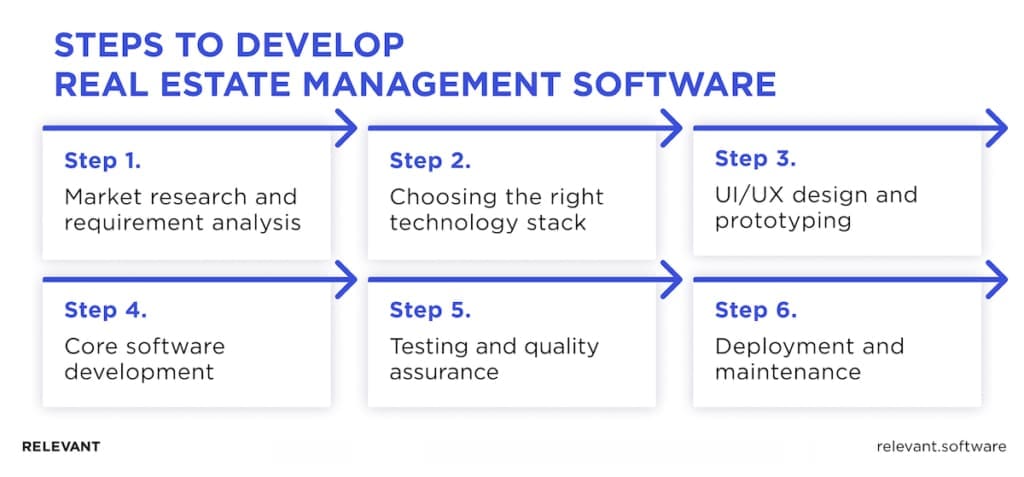
Market research and requirement analysis
We start by mapping user-specific needs and technical requirements. Stakeholder interviews, user journey mapping, and competitor analysis reveal gaps and opportunities. For example, in a recent project, we identified the need for real-time data synchronization, leading us to implement WebSockets for instant updates on lease expirations and maintenance requests.
Choosing the right technology stack
Our technology choices focus on scalability and future-proofing. In high-demand projects, we’ve combined:
- Frontend: React.js for dynamic, modular interfaces. In complex dashboards, we’ve used D3.js to create real-time data visualizations.
- Backend: Node.js for asynchronous event-driven processes, essential for real-time updates in multi-tenant systems. In data-heavy environments, Django’s ORM helped streamline database interactions.
- Database: A hybrid approach using PostgreSQL for structured lease data and MongoDB for unstructured data like tenant communications and images.
- Cloud Infrastructure: We leveraged AWS services—Lambda for serverless microservices, DynamoDB for high-speed lookups, and S3 for scalable media storage.
UI/UX design and prototyping
The design puts usability and performance first. We build wireframes in Figma with a focus on intuitive workflows. A recent project featured a dashboard that displayed lease expirations and rent collection metrics, with D3.js for data visualization. Mobile responsiveness and cross-platform consistency stay essential. User tests confirm smooth navigation and strong engagement.
Core software development
We focus on modular, reusable code and smooth third-party integration. In one project, IoT device integration for smart building management played a key role. We developed middleware to process real-time sensor data, enabling property managers to track energy use and HVAC performance directly through the platform.
- Frontend: Reusable React components with optimized state management.
- Backend: RESTful APIs or GraphQL for flexible data queries.
- Integrations: Stripe for payments, QuickBooks for accounting, and GIS APIs for property mapping.
Security protocols include OAuth 2.0 authentication, SSL/TLS encryption, and AES-256 for data at rest. Role-based access ensures user data integrity.
Testing and quality assurance
We follow a strict testing protocol:
- Unit & Integration Testing: Jest, Mocha, and Postman validate code and APIs.
- Load Testing: JMeter simulates high traffic to expose system bottlenecks.
- Security Testing: OWASP ZAP runs vulnerability scans to ensure compliance with GDPR and CCPA.
Performance tuning resolves bottlenecks, improving system speed and reliability.
Deployment and maintenance
We utilize blue-green deployment strategies to ensure zero downtime during updates. Continuous monitoring with Grafana and Prometheus alerts our team to anomalies, while automated scaling in AWS ensures the platform adjusts to user demand in real-time.
Deployment involves setting up CI/CD pipelines for smooth rollouts. We use Docker containers orchestrated with Kubernetes for scalability. Post-deployment, we monitor performance using Prometheus and Grafana while Sentry tracks real-time errors. Regular updates, feature enhancements, and security patches keep the platform optimized. We also implement automated backups, multi-region replication, and disaster recovery protocols to safeguard data.
Explore more about custom software development services.
Challenges in real estate management software development
Real estate management software comes with real challenges—complex data, tenant demands, compliance hurdles, and the need for seamless user experiences in the real estate industry. We turn that complexity into streamlined, efficient solutions that enhance ease of use, helping Relevant Software clients spend less time managing properties and making property management simpler and smarter.
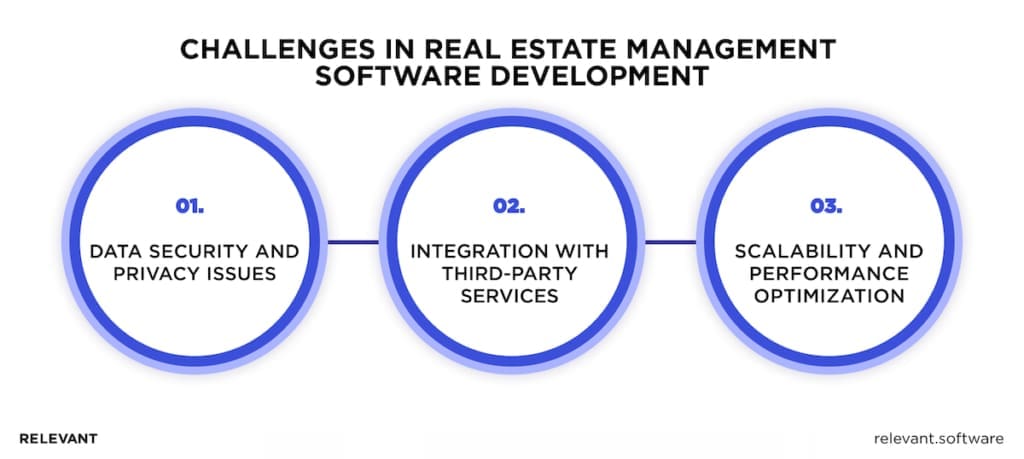
Data security and privacy issues
Sensitive tenant and financial data require robust protection. Data integrity, secure transactions, and legal compliance remain critical.
Challenge: Prevent data breaches while keeping systems accessible.
Relevant Software’s expert solution: We use end-to-end encryption, SSL/TLS protocols, and role-based access controls. Our solutions meet GDPR, HIPAA, and other privacy regulations. Regular penetration tests and vulnerability scans strengthen data protection.
Integration with third-party services
Property management software must connect with multiple tools—payment gateways, CRMs, and accounting platforms—each with its own challenges.
Challenge: Build seamless, secure API connections without data loss or delays.
Relevant Software`s expert solution: We create modular, API-first architectures that streamline integration. Whether integrating QuickBooks, Stripe, or custom CRM tools, we ensure smooth, secure data exchanges.
Scalability and performance optimization
Growing property portfolios push systems to their limits. Platforms must scale without losing speed.
💡Challenge: Manage large property databases while ensuring real-time data access.
🔑Relevant Software`s expert solution: We leverage scalable cloud infrastructures like AWS and Azure, implement microservices architectures, and apply load balancing to keep systems responsive under pressure.
Adapting to changing real estate regulations
Real estate laws shift frequently, creating compliance risks for static systems.
💡Challenge: Keep platforms in line with changing local, state, and national regulations.
🔑Relevant Software’s expert solution: We build rule-based engines that auto-update tax rates and compliance protocols, ensuring systems stay current without manual updates.
Cost of developing real estate management software
Rental property management software development comes with a range of costs influenced by project scope, feature complexity, technology choices, and the expertise of the development team. A basic property management system (PMS) with tenant tracking and rent collection starts at around $30,000, while advanced solutions with predictive analytics, IoT integrations, and CRM modules can reach $250,000 or more. Beyond the initial build, ongoing maintenance, updates, and scaling also add to the overall investment.
How AI is transforming real estate management software
What if your custom real estate management software could predict maintenance issues before they happen, screen tenants with pinpoint accuracy, or market properties to the right audience without lifting a finger? AI makes all of this—and more—a reality.

AI-powered property valuation and market analysis
Forget generic market estimates. AI algorithms now dive deep into massive datasets—local market trends, rental prices, economic shifts, and historical sales—to deliver accurate, real-time valuations. AI in property management systems feels like an expert analyst on hand 24/7.
Predictive analytics push further, uncovering new investment opportunities and exposing potential risks before they appear. Managers and investors gain the power to make faster, data-driven decisions that create real returns.
AI chatbots and virtual assistants
Tenant questions never stop, but that doesn’t mean property managers should be on call 24/7. AI-powered chatbots and virtual assistants streamline tenant communication, automating lease tracking, rent collection reminders, and maintenance scheduling—all crucial features in modern property management software. These bots aren’t limited to simple scripts either.
With advanced natural language processing (NLP), chatbot for real estate can hold real conversations, pulling data from CRM systems to personalize responses on real estate websites. As a result, tenants get instant answers, managers reclaim their time, and overall communication becomes smoother and more efficient.
AI for predictive maintenance
Maintenance issues can spiral into costly disasters if left unchecked. Real estate software with predictive analytics changes the approach by forecasting equipment failures before they occur. Machine learning models study historical maintenance data, usage patterns, and real-time inputs from IoT sensors to predict when systems—such as HVAC units or elevators—may break down.
This allows property managers to plan maintenance in advance, cut downtime, reduce repair costs, and extend the life of valuable assets. Predictive maintenance stops problems before they start.
Smart lease and document processing
If you’ve ever spent hours sifting through lease agreements, you’ll appreciate what AI brings to the table here. Smart tools can now draft lease agreements, ensuring they’re compliant with legal standards, while Optical Character Recognition (OCR) extracts key details from documents in seconds.
But it doesn’t stop there. Natural language processing algorithms can scan contracts to flag unusual clauses or risky terms. This extra layer of analysis helps facility managers stay on top of compliance and avoid nasty surprises hidden in the fine print.
AI in tenant screening and risk assessment
Tenant screening is crucial, but it’s also time-consuming. AI speeds up the process while adding depth to the analysis. Advanced algorithms now run thorough background checks and score potential tenants based on multiple factors, from credit history to behavioral patterns.
AI doesn’t just look at the basics—it spots red flags like potential fraud and predicts the likelihood of late payments or lease violations. Over time, ML models refine their assessments, leading to smarter, faster, and more reliable tenant evaluations.
AI-enhanced marketing and lead generation
Real estate marketing now sees a major shift with AI. Instead of broad ads, AI in property management reads user behavior to show personalized suggestions that truly fit.
Real estate agencies fine-tune ad focus, reaching the right audience with the right message at the right moment. AI-powered analytics reveal which channels work best, letting agencies adjust campaigns and raise conversion rates.
Learn how we build AI-driven solutions.
Our success stories in real estate
Every real estate project has its own story, filled with challenges, goals, and big ideas. We’ve had the privilege of working alongside clients who wanted to simplify complex software product development processes, improve tenant experiences, and grow their businesses. Here are some of the stories we’re proud to be part of.
Facilitron
Facilitron set out to simplify how communities access public spaces, but behind its streamlined platform was a fragmented, manual process that slowed everything down. Staff had to capture property images, transfer files, rename them, and upload each photo to the right venue—an inefficient system that drained time and resources.
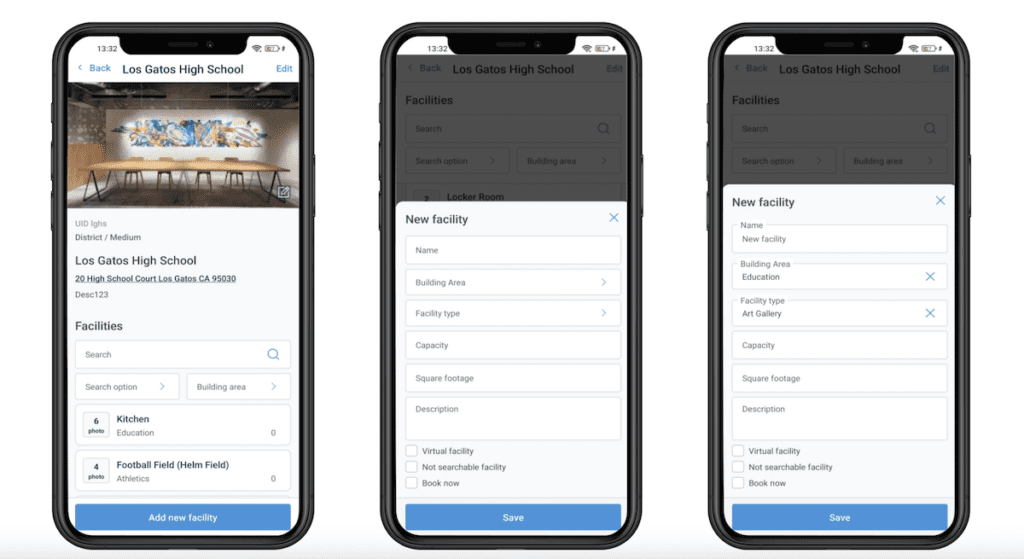
We stepped in to turn this around. Our team designed a robust mobile app that reimagined image management from the ground up. Staff can now capture high-quality images, apply enhancements, and sync them to the platform—all in one seamless workflow. Geolocation tags ensure every image maps accurately to its facility, while offline functionality lets users work without disruption, even in areas with limited connectivity.
Bidly
Bidly, a real estate platform in the Netherlands, connects landlords and tenants, allowing users to list properties, manage rentals, and process payments. When we joined the project, the platform faced major technical issues—a broken build and a faulty Docker setup that blocked the project from running.

After we stabilized the environment, we rebuilt the Angular front end to enhance design and usability and refined the back end for smoother integration. This produced a fully functional, modern platform with a stable CI/CD pipeline, which supports efficient property management and a better user experience for landlords and renters.
View the full case study to explore how we transformed Bidly’s platform.
FirstHomeCoach
FirstHomeCoach set out to simplify the UK home-buying process for first-time buyers. They needed a platform to break down complex steps—save for deposits, secure mortgages, and handle legal tasks—while offering personalized, data-backed guidance.
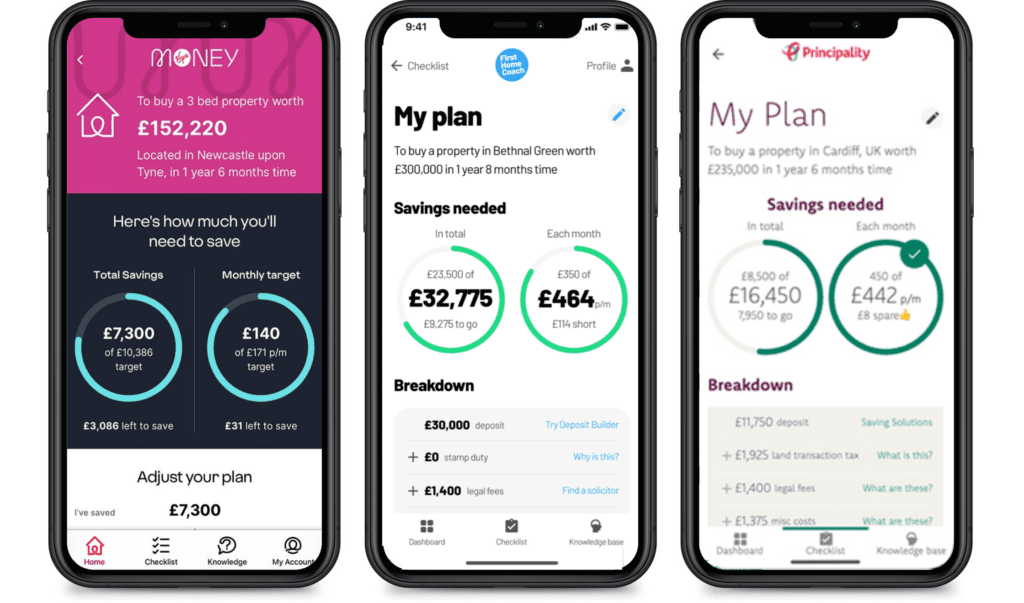
We built a secure, data-driven SaaS solution with a custom recommendation engine, mortgage calculators, deposit tools, and third-party integrations. Our PMO managed smooth collaboration, refined workflows, and sped up onboarding. Thousands of first-time buyers now use FirstHomeCoach to navigate the home-buying process, with over 200,000 data points processed and more than 5,000 users planning property purchases in the first year.
Explore the full case study to discover how Relevant Software’s team simplified the UK homebuying journey with FirstHomeCoach’s data-driven SaaS solution.
Build real estate management software with Relevant
Real estate management is complex—but your software shouldn’t be. At Relevant, we help businesses create smart, scalable real estate management solutions that simplify operations, cut inefficiencies, and improve tenant experiences. Whether you need an AI-driven platform for property analytics, a system to streamline leasing or the best real estate management software for small businesses, we’ve got the expertise to make it happen. We focus on building software that not only works but works for you.
Have an idea? Need advice? Or just want to see what’s possible? Contact us —we’re ready when you are.
Our core services:
Do you want a price estimate for your project?
Do you know that we helped 200+ companies build web/mobile apps and scale dev teams?
Let's talk about your engineering needs.
Write to us